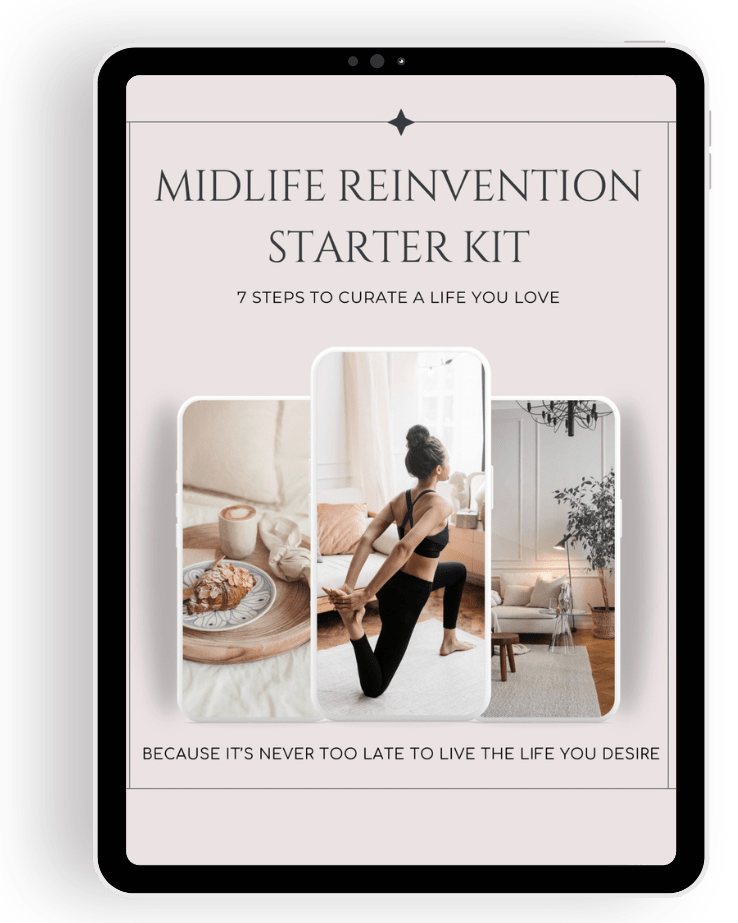The transition from perimenopause to menopause is a significant phase in a woman’s life, often accompanied by various physiological and emotional changes. One of the most common concerns during this period is weight gain. Understanding the underlying causes and implementing effective strategies can empower women to manage their weight with confidence and ease.

Understanding Menopause-Related Weight Gain
Hormonal Shifts
During perimenopause and menopause, estrogen levels decline, leading to various metabolic changes. This hormonal shift can contribute to an increase in fat accumulation, particularly around the abdomen. Research indicates that lower estrogen levels are associated with fat accumulation around the middle, which can increase the risk of insulin resistance, type 2 diabetes, cardiovascular disease, and other health issues.
Metabolic Slowdown
Ageing naturally leads to a decrease in muscle mass, which slows down metabolism. This reduced metabolic rate means that the body requires fewer calories, and consuming the same amount of food as in younger years can result in weight gain. It’s common for weight gain to start a few years before menopause, during the time known as perimenopause. Weight gain often continues at about the rate of 1.5 pounds each year as a woman goes through her 50s.
Lifestyle Factors
Changes in lifestyle, such as decreased physical activity and alterations in diet, can further contribute to weight gain during this period. Balancing work, family, and personal health becomes challenging, often leading to less time for exercise and meal planning.

Symptom Checker: Identifying Weight-Related Changes
Recognising the signs of menopause-related weight gain is crucial for timely intervention. Consider the following checklist:
- Increased Abdominal Fat: Noticeable growth in waist circumference.
- Unexplained Weight Gain: Gaining weight without significant changes in diet or activity level.
- Reduced Muscle Mass: Feeling weaker or observing muscle loss.
- Slower Metabolism: Experiencing fatigue or decreased energy levels.
- Changes in Appetite: Increased cravings, especially for sugary or high-fat foods.
If you identify with several of these symptoms, it may be time to assess your lifestyle and implement strategies to manage weight effectively.

Strategies to Manage Weight Gain
Nutrition: Building a Balanced Diet
Adopting a nutrient-rich diet is fundamental in managing weight during menopause.
- Embrace the Mediterranean Diet: Rich in vegetables, lean meats, fish, and healthy fats like olive oil, this diet supports overall health and weight management.
- Prioritise Protein Intake: Protein is essential for muscle repair, hormone production, immune function, and appetite management. Incorporate lean meats, dairy, legumes, and plant-based proteins into your meals.
- Limit Processed Foods and Sugars: Reducing the intake of processed foods and sugars can help prevent weight gain and improve overall health.

Physical Activity: Staying Active
Regular exercise is crucial for maintaining a healthy weight and mitigating menopause-related weight gain.
- Strength Training: Incorporate resistance exercises to build muscle mass, which can boost metabolism. A study conducted by the University of Exeter showed that low-impact resistance exercises improved strength and balance in menopausal women.
- Cardiovascular Exercise: Engage in activities like walking, cycling, or swimming to promote cardiovascular health and burn calories.
- Flexibility and Balance: Practices such as yoga or Pilates can enhance flexibility, balance, and overall well-being.

Sleep: Prioritising Rest
Quality sleep is essential for weight management and overall health.
- Establish a Sleep Routine: Go to bed and wake up at the same time daily to regulate your body’s internal clock.
- Create a Restful Environment: Ensure your sleeping area is dark, quiet, and cool to promote better sleep.
- Limit Caffeine and Screen Time: Reduce caffeine intake and avoid electronic devices before bedtime to improve sleep quality.

Stress Management: Finding Balance
Chronic stress can lead to weight gain and other health issues.
- Mindfulness and Meditation: Regular mindfulness practices can reduce stress and improve mental clarity.
- Physical Activity: Exercise is a natural stress reliever and can improve mood.
- Hobbies and Social Connections: Engage in activities you enjoy and maintain social connections to enhance emotional well-being.

Journaling Prompts: Reflecting on Your Journey
Journaling can be a powerful tool to understand and manage weight gain during menopause. Consider the following prompts:
- Daily Food and Mood Log: Track your meals and note any emotional triggers for eating.
- Exercise Reflection: Record your physical activities and how they make you feel.
- Sleep Patterns: Note your sleep quality and any factors that may influence it.
- Stress Assessment: Identify sources of stress and document your coping strategies.
- Goal Setting: Outline your health and wellness goals, and track your progress over time.
Regular journaling can help identify patterns, set realistic goals, and monitor progress, providing valuable insights into your health journey.

Frequently Asked Questions
Q: Is weight gain inevitable during menopause?
A: While hormonal changes can make weight management more challenging, weight gain is not inevitable. By adopting a balanced diet, staying active, managing stress, and prioritising sleep, women can maintain a healthy weight during and after menopause.
Q: Why does fat accumulate around my belly instead of other areas?
A: During perimenopause and menopause, declining estrogen levels cause the body to shift fat storage from the hips and thighs to the abdomen. This change is partly due to insulin resistance, metabolic shifts, and stress-related increases in cortisol, which encourages fat storage in the midsection.
Q: How can I boost my metabolism as I age?
A: Strength training, protein-rich diets, hydration, and adequate sleep can help maintain and boost metabolism. Consistency in these habits is key to long-term success.
Q: Does hormone replacement therapy (HRT) prevent weight gain?
A: HRT can help alleviate some menopause symptoms, including hot flashes and mood changes, but it is not a guaranteed solution for weight management. Some studies suggest that HRT may prevent fat redistribution to the abdomen, but lifestyle choices remain the most effective strategy for maintaining a healthy weight.
Q: What role does gut health play in menopause-related weight gain?
A: Gut health significantly affects metabolism, digestion, and inflammation. A diet rich in fibre, probiotics, and prebiotics can support a healthy gut microbiome, improving digestion and potentially reducing weight gain.
Q: Are there specific foods that help with menopause weight management?
A: Yes. Foods that can help include:
- Protein-rich foods (chicken, fish, eggs, legumes) to maintain muscle mass
- High-fibre foods (vegetables, whole grains, beans) to support digestion
- Healthy fats (avocados, nuts, olive oil) for hormone balance
- Phytoestrogen-rich foods (soy, flaxseeds) to help with hormonal fluctuations
Q: What exercises are best for menopause weight loss?
A: A combination of:
- Strength training (weights, resistance bands) to maintain muscle mass
- Cardio workouts (walking, swimming, cycling) to burn calories
- Flexibility and stress-reducing exercises (yoga, Pilates) to improve balance and reduce cortisol levels
Q: How can I overcome emotional eating during menopause?
A: Emotional eating is common during menopause due to hormonal fluctuations. Managing stress through meditation, exercise, and journaling can help reduce cravings. Keeping healthy snacks on hand and practising mindful eating can also prevent overeating.

Your Menopause Weight Management Plan: Practical Steps to Take
Now that you understand the why behind menopause-related weight gain, let’s focus on actionable steps to manage it effectively.
1. Revamp Your Nutrition
- Eat More Protein: Aim for 25-30 grams per meal to preserve muscle.
- Increase Fiber Intake: Helps digestion and prevents bloating.
- Prioritise Healthy Fats: Supports hormone function and satiety.
- Reduce Processed Foods: Lowers inflammation and insulin resistance.
- Stay Hydrated: Helps with metabolism and reduces cravings.
2. Optimise Your Exercise Routine
- Strength Training (2-3 times per week) to maintain muscle and metabolism.
- Cardio Workouts (4-5 times per week) for heart health and fat burning.
- Flexibility & Balance Work (yoga, stretching) to reduce stress and improve mobility.
3. Improve Sleep Quality
- Maintain a Consistent Sleep Schedule (even on weekends).
- Limit Screen Time before bed to prevent blue light interference.
- Reduce Caffeine & Alcohol Intake to support deep sleep cycles.
4. Reduce Stress & Balance Hormones
- Practice Mindfulness: Daily meditation or deep breathing exercises.
- Incorporate Adaptogenic Herbs: Ashwagandha, Rhodiola, and maca may help balance cortisol levels.
- Schedule Downtime: Make time for hobbies and relaxation.
5. Track Your Progress with Journaling
Use a Menopause Weight Journal to track:
- ✅ Daily meals and portion sizes
- ✅ Exercise routine and energy levels
- ✅ Sleep quality and stress triggers
- ✅ Menstrual cycle changes
- ✅ Emotional eating patterns
➡️ DOWNLOAD Your Comprehensive Perimenopause and Menopause Symptoms Tracker

Final Thoughts: Thriving Through Menopause with Confidence
Menopause-related weight gain does not have to be inevitable or overwhelming. With the right knowledge, tools, and strategies, you can take control of your health, feel energised, and thrive in this phase of life.
By focusing on whole foods, strength training, stress management, and self-care, you can maintain a healthy weight while feeling strong, vibrant, and confident.
Your Next Steps:
- ✔ Start a food and exercise journal
- ✔ Plan your meals with a focus on whole, nutrient-dense foods
- ✔ Incorporate movement daily, even if it’s just a 20-minute walk
- ✔ Prioritise sleep and stress management to support hormone balance
This is a season of transformation – embrace it with self-care, patience, and a commitment to your well-being. You deserve to feel your best!

DISCLAIMER
I am not a health professional or medical practitioner. I am a certified Menopause Wellness Coach, and the information provided here is intended for educational and informational purposes only. It should not be taken as medical advice, diagnosis, or treatment. For any health-related concerns or queries, please consult your GP or a qualified healthcare provider. Always seek the advice of a medical professional before making any changes to your healthcare routine or starting new treatments.

Feel free to sign up to my Friday Morning Love Note HERE! This isn’t just a newsletter - it’s your invitation to pause, reflect, and realign with you. Every week, we’ll journey together to uncover the small, meaningful shifts that will help you design a life that feels uniquely and beautifully yours. Each week, I’ll deliver fresh intentions, uplifting tips, and simple shifts to inspire purposeful, creative living.




